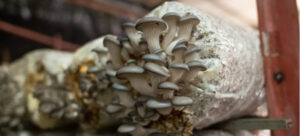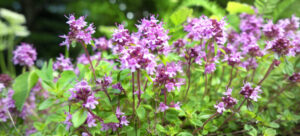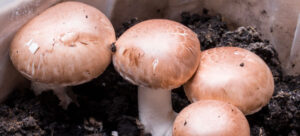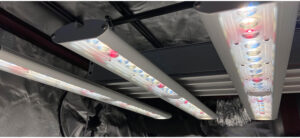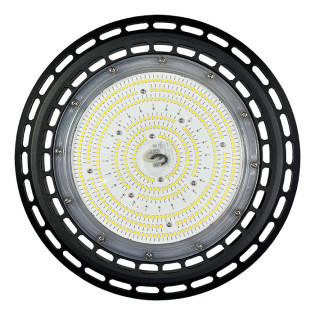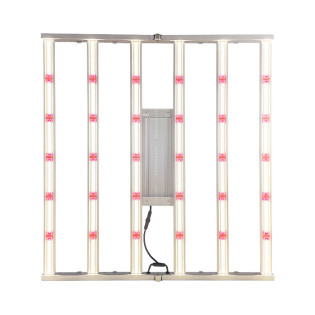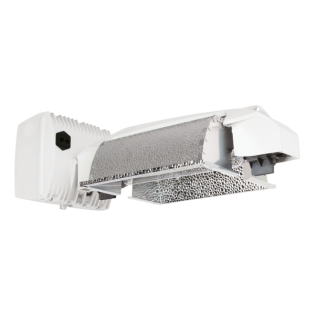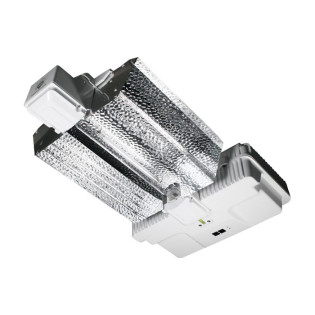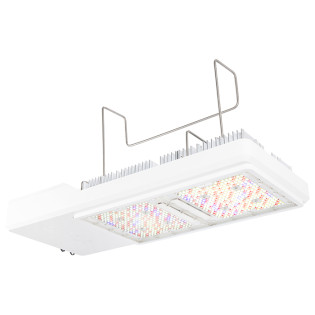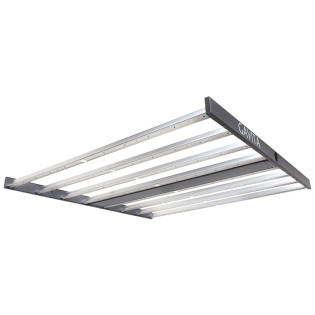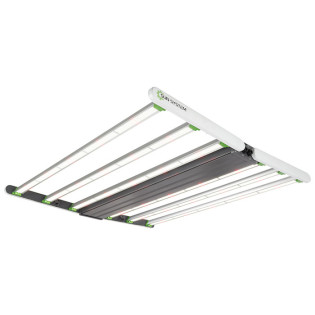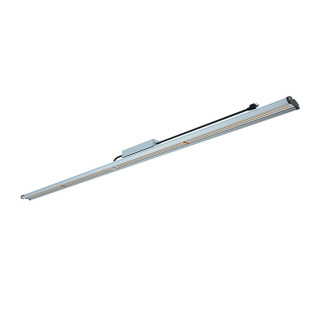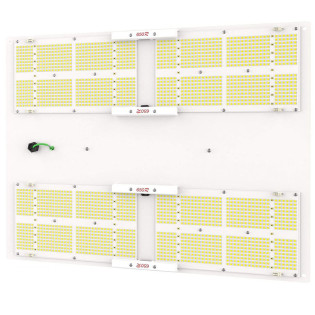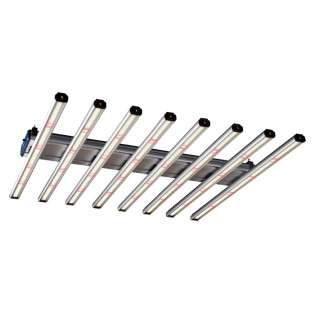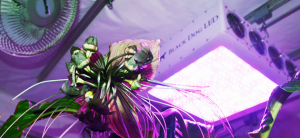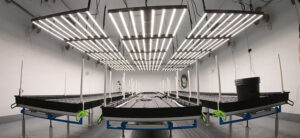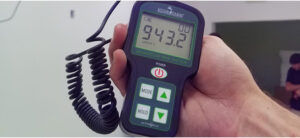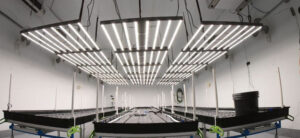
The debate over LED vs HPS grow lights and how each technology produces buds is a hot one.
Growers who have been at this for decades and started out with this older, high-pressure sodium lighting swear by it, and are hesitant to switch to something new - especially when looking at the cost difference between HPS & LED grow lights.
LED growers, on the other hand, point to the huge savings in electricity costs, along with decreased heat production in the grow room. They also reference bigger, more resinous flowers.
So which technology is right for you? Should you finally make the jump over to LEDs?
In this article, we're going to break down the pros and cons of each lighting style to help you understand which one is right for your crop. Because while LEDs are the better light, they might not be right for you at this time.
Let's get started by explaining the criteria we're going to use to compare HPS lights vs LED.
LED vs HPS Grow Lights - The Criteria For Comparing The Two
There are so many factors that go into what makes one grow light better than the other, and not every grower cares about the same exact metrics.

Maybe you’re more concerned with the upfront cost of the light than the energy savings it provides. Maybe you don’t want the most powerful light - you want one that produces a uniform footprint and produces minimal heat.
That’s why we’re going to get ultra-specific with how we compare these two very different technologies against one another. Here are the factors we’ll be looking at:
- Upfront investment cost
- Energy efficiency
- Light spectrum
- Light intensity, penetration, and uniformity
- Heat produced
- Lifespan & maintenance costs
We feel that all these factors are important, and we’ll dedicate a section to each of these in the remainder of this article.
Comparing LED Grow Lights vs HPS Technology

While all of these factors are important, we know how many hobby growers we have in our community. And to most hobby growers, the most important factor is cost-effectiveness.
You might not need or even want the latest and greatest technology - maybe you just want something that will get you through your first few harvests, at which point you can determine whether you want to take this hobby more seriously and upgrade down the road.
So let’s start with the upfront investment of each light.
Upfront Cost Of The Light
This may be the one category where HPS technology takes the cake in almost every light comparison we’ve seen.
Without a doubt, HPS technology is cheaper than LED. You can get a 1,000-watt HPS grow light for under $300.
On the flip side, a comparable LED grow light is going to cost almost twice as much. You don’t need as many watts to replace an HPS with an LED, but even still - this new technology costs more, and justifiably so. As we cover the remaining factors, you’ll see why this is.
With all this said, if you’re just starting out your grow and you are working with a strict budget, you will probably be inclined to opt for the more budget-friendly HPS option.
There is nothing wrong with this, but if you are really concerned with saving money, it may actually make sense to spend up from the start and go with LED technology instead. Let’s talk about energy efficiency.
Energy Efficiency & Electricity Costs
While you’ll spend less to get your HPS grow light up and running, you’ll end up paying more over the course of a few years because of the cost of electricity.

All grow lights will have some electricity cost associated with them - they operate for as long as 24 hours a day, which means you’ll have to budget for this cost for sure. To determine exactly what this cost is - check out our grow room electricity cost calculator.
But just know this - LED grow lights can operate up to 40% more efficiently than a comparable HPS light. That’s pretty impressive, right?
What’s even more impressive is the true energy savings when you factor in the other aspects you’ll save on - spoiler alert, but these produce less heat, too. This means you save more on HVAC, fans, etc.
At the end of the day, you can expect to save up enough money on your energy bill to cover the cost of investing in this more efficient technology. Commercial growers will save even more when taking advantage of utility rebates!
Light Spectrum & Quality

There is really no better light quality than the power of the sun - which is why so many growers prefer outdoor growing.
But indoor growing has advantages of its own, and oftentimes, is your only choice. So it’s important to replicate that sun as closely as you can. That’s where your grow lighting spectrum comes in.
Spectrum describes the different wavelengths of light a fixture puts out. Ideally - you grow with a light that is full-spectrum, just like the sun. Even better if your fixture features added UV light for your plants!
So which technology - LED or HPS - puts out a more optimized light spectrum for plant growth? That would be - yet again - LEDs.
HPS grow lights can definitely get you from seed to harvest, but they’re best for flowering because of the red wavelengths they’re more dominant in. That’s why many growers will also keep an MH grow light or at least a bulb on hand to use during veg.
LEDs not only serve as a full spectrum of light - ideal for both veg & flower - on many of these fixtures, but you can also actually adjust the spectrum to fine-tune it to whichever phase your plants are in. Most of these include added IR & UV light to round out the spectrum, too.
Light Intensity, Penetration, & Uniformity

One of the most important factors to growers is the intensity & effectiveness of their grow light - how much gets to the plant, and how deep is your light able to penetrate through the canopy?
Weaker lights will really only illuminate the very top of your plants - leading to a few colas with tons of low potency, popcorn nugs throughout the middle of the plant - even with plant training.
There is no question HPS grow lights put out an intense light - nobody is arguing against that. But how well does it do this? HPS technology is very limited when it comes to light distribution, so you’ll have hot spots on your plant - areas that get substantially more light than others. HPS do not create a super uniform light.
LEDs, on the other hand, are perhaps more intense while simultaneously dispersing that light more evenly, and deeper into the plant.
Lighting tests have shown that while HPS creates just as intense of light, it only does so in the very, very center of your canopy. LEDs, on the other hand, disperse similar PPFD levels across the entire footprint of the light - with minimal losses the further you extend outward.
If you’re paying to the electricity to run your light, you might as well make sure it’s an intense light that actually penetrates your canopy and disperses across your entire footprint. Again, LEDs take the cake here.
Heat Produced By The Fixtures

Grow room or tent heat creates all kinds of problems - this is why it’s important to manage your grow room environment by setting up a ventilation system. In some cases, you may even need a grow room AC.
A lot of this heat is generated by your grow lights - it’s inevitable. But other pieces of equipment in your space like dehumidifiers, co2 equipment, etc. will also contribute to rising temperatures.
By investing in LED technology instead of HPS, you’ll help mitigate this heat production in your growing space. LEDs produce far less heat, partly due to their efficiency, partly due to the technology itself.
These heat reductions are further complimented when you factor in the modern-day design of LED’s - the open bar styles help heat dissipate above the fixture rather than below, right above the canopy.
HPS are notorious for producing a lot of heat - even the air-cooled options run hot. Part of this is because of the ballasts that run these fixtures, but the bulbs themselves put out a ton of heat too.
If you want to save even more on your HVAC & ventilation costs while ensuring your plants have an ideal growing environment - stick with the cool LED technology!
Lifespan & Maintenance Costs
The final two factors we want to look at have to do with maintenance and lifespan. There's a key difference between LED grow lights & HPS in that LED's don't utilize bulbs.
They are built with LED diodes, which can have a lifespan of over 50,000 hours! HPS bulbs on the other hand, need to be replaced up to a few times every year.
If you just have one or two grow lights, this may not be a huge deal to you - but commercial growers can save a ton of money on labor & replacement bulbs by making the choice to implement LED technology!
Results Growers Have Seen Between LED Grow Lights vs HPS
All these metrics and comparisons sound great, but we also wanted to look at the field (or grow room, more specifically) to see what growers reported when switching between the two technologies, or better yet - doing side-by-side tests with the two types.
We took a look at a study done in 2017 which compared yields from the two fixture types and found that pound/fixture yields were 2.53 & 2.01 for LED and HPS respectively. This was four years ago, and the technology of LEDs has improved drastically even in this short time span - there’s reason to believe that the disparity in yield is even higher now.
We also want to reference a cost/benefit analysis of LED & HPS technology put together by the folks at Specgrade Lighting. While it’s formulated with a large commercial warehouse in mind, these findings are still promising for growers at all levels.
They found that for a hypothetical 10,000 sq. ft. facility, LED’s can result in savings of over $1.25 million with an ROI as quick as 1.6 years! This was derived from all the things we mentioned above that make LEDs a better light - these guys took things a bit further, and also pointed to advantages LEDs have such as:
- Longer lifespans
- Less hazardous waste with no bulb replacements
- Less water evaporation (water savings)
- The ability to grow plants vertically in racks
- Fewer maintenance costs associated with bulb and/or reflector change-outs
LED vs HPS - Which Lighting Technology Will You Choose?
We feel it’s more than fair to say that LED grow lights are the way of the future - and if you don’t make the switch now, you’re only prolonging the inevitable.
With so many different LED manufacturers out there, it’s tough to choose just one for your room. Our year-end review of the best LED grow lights is a great place to start. There, you’ll find a recommendation for every type of grow you can imagine - you’ll find your perfect light for sure.
But if you’re still not sold, we understand. In the meantime, check out our review of the best HPS grow lights of the year!


